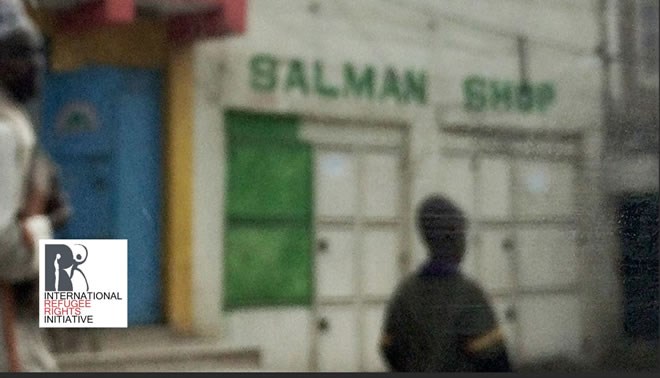
Monday October 9, 2017

MOGADISHU Somalia (Xinhua) -- International refugee rights organization has called for effective protection of Somali refugees, who have been forced to flee violence associated with extremist group Al-Shabaab.
In a report released on Friday, the International Refugee Rights Initiative (IRRI), which works to address causes of conflict-related displacement to ensure that the rights of those forced to leave their homes are respected, said that existing security strategies targeting refugees neither provide security for the country nor protect refugees.
Instead, says the report, the strategies foster fear and feelings of exclusion and can act as a smokescreen for criminal activity.
“The core message of this research is that the essence of refugee protection needs to be recovered and maintained,” said Lucy Hovil.
“With the space for refugee protection shrinking globally, there is an urgent need to shift the narrative away from a growing emphasis on protection from refugees and back to an emphasis on protection for refugees,” Hovil added.
Despite the fact that many Somalis are fleeing violence associated with the militant group Al-Shabaab, the report shows that their plight echoes a global tendency to label those who have fled “violent extremism” as extremists themselves and therefore as an implicit danger.
The report looks at the impact that the increased securitization of refugee policy has had on the lives of refugees.
The report which is based on 80 interviews with Somali refugees living in Kenya, Uganda and the United States, as well as interviews with relevant NGO, UN and government actors, highlights some of the realities that refugees face when governments fashion a correlation between forced migration and insecurity that is both fundamentally flawed and has serious implications for people’s lives.
The report says Somalis in Uganda, while coping with the same challenges that all refugees in the country face, spoke more positively about their welcome.
According to the report, although a few raised concerns about police surveillance and public attitudes, Somali refugees did not feel singled out on security grounds.
Many did, however, talk about the challenges of integration, especially language difficulties, but there was less evidence of a securitized approach influencing their daily lives in exile.
In the U.S., many talked about the negative implications created by President Donald Trump’s travel ban and while economic and legal integration appeared more readily accessible, refugees described discrimination in employment, in relation to policing and among some segments of the public.
The report’s findings point to the reality that policies, especially restrictions on freedom of movement and the emphasis on repatriation as the only viable durable solution, leave refugees marginalized and isolated. Negative rhetoric further alienates populations and fosters negative public perceptions of these populations among the host community.
“In East Africa, this has led some to opt for tahrib (migration through non-legal routes) despite the well-known dangers involved. Some interviewees expressed concern that these same factors have also made refugees more vulnerable to recruitment,” IRRI said.
However, others argued that terrorist groups were more interested in recruiting those who could bring resources to the organization.
The report calls for the need to reorient global migration debates away from overtly securitized narratives that likely benefit neither refugees, nationals nor global security, towards an emphasis on greater protection through greater inclusion that is likely to facilitate better security through community engagement and cooperation.